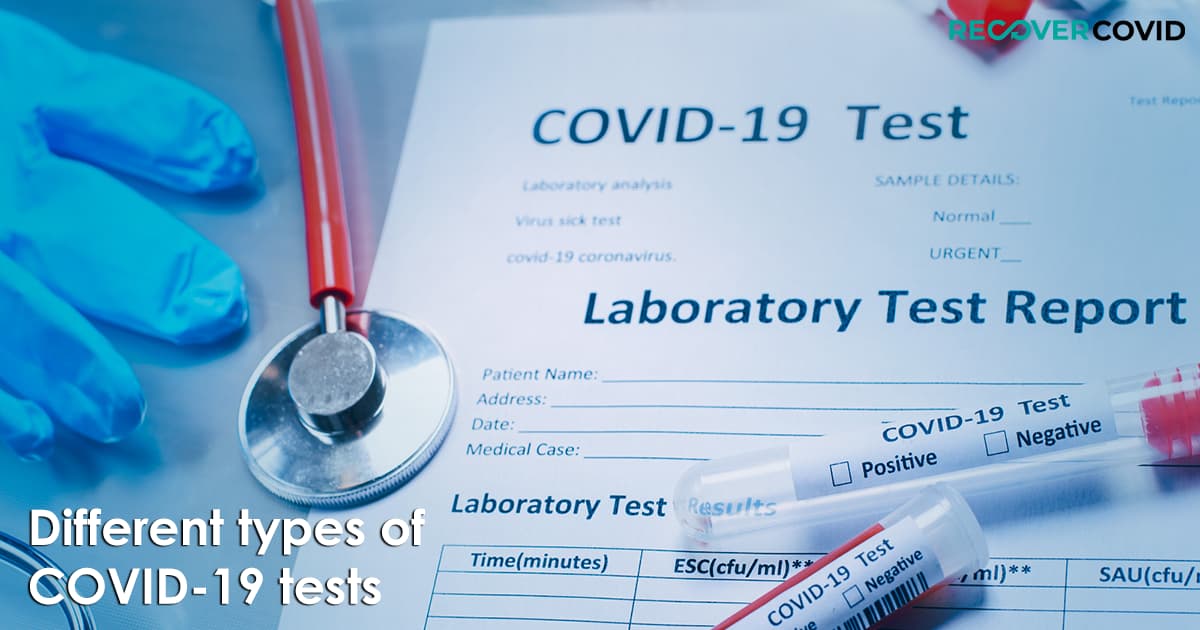Different types of Covid- 19 tests – which one to use

The FDA has been working around the clock for increasing the availability of tests for SARS-CoV-2. There are two types of tests for covid-19, diagnostic tests and antibody tests.
Diagnostic test
A diagnostic test is used to test whether you have an active coronavirus infection and should take necessary steps to quarantine yourself from others. There are two types of diagnostic tests, molecular and antigen tests. Molecular tests include RC-PCR tests that detect the virus’s genetic material, whereas antigen tests are used for detecting specific proteins from the virus.
Antibody test
An antibody test tests for antibodies made by the immune system in response to a threat, for example, a specific virus. Antibodies help fight infections, however, can take several days or weeks to develop after you have an infection. The antibodies may stay in the blood several weeks even after recovery. For this reason, antibody tests should not be used for the diagnosis of covid-19. Although, researchers still do not know whether the presence of antibodies means that you are immune to the virus in the future.
Diagnostic tests with alternative methods
Diagnostic tests are now available with alternative options, including:
Rapid, point of care diagnostic tests
The diagnostic tests use mucus samples from the nose or throat. The sample is analyzed at the doctor’s clinic or office or where it is collected with the results available within minutes.
Combination tests
Combination tests are used for testing for the flu virus and coronavirus at the same time. Some tests can test for many types of respiratory viruses, including the covid-19 virus.
At-home collection tests
These tests are available only on prescription from a doctor. This allows for the patient to collect the sample at home and send it to the lab for analysis. Some tests have a health care provider oversee the sample collection via video.
Saliva tests
Saliva tests, rather than getting their throat or nose swabbed allow a patient to spit into the tube. Saliva tests are safer for health care workers as they can be farther away during the sample collection. In addition, more comfortable for some people.
Molecular diagnostic tests
Several companies and labs have developed tests for diagnosing covid-19 by detecting the virus’s genetic material in a sample from the patient’s nose or throat.
Antigen tests
Antigen tests provide results faster than molecular tests. However, the tests have a higher chance of missing an active infection. In addition, if the test shows a negative result which indicates that you do not have covid-19, your health care provider may refer you for a molecular test to confirm the diagnosis.
Antibody tests
Antibody or serology tests also provide quick results, however, should not be used for diagnosing an active infection. The tests only detect antibodies that the immune system develops in response to the virus and not the virus itself. It can take days and even several weeks to develop enough antibodies that can be detected in a test.
